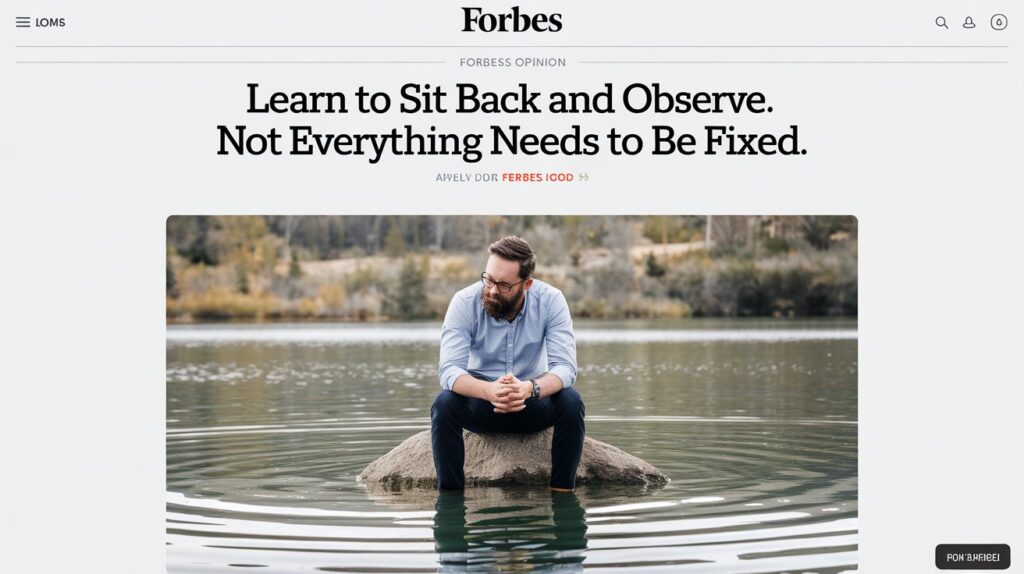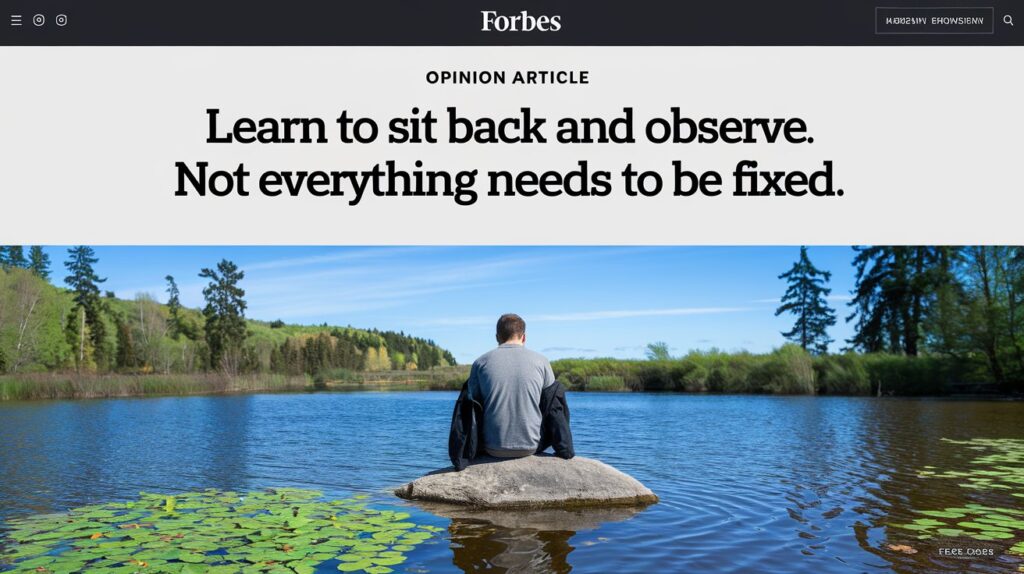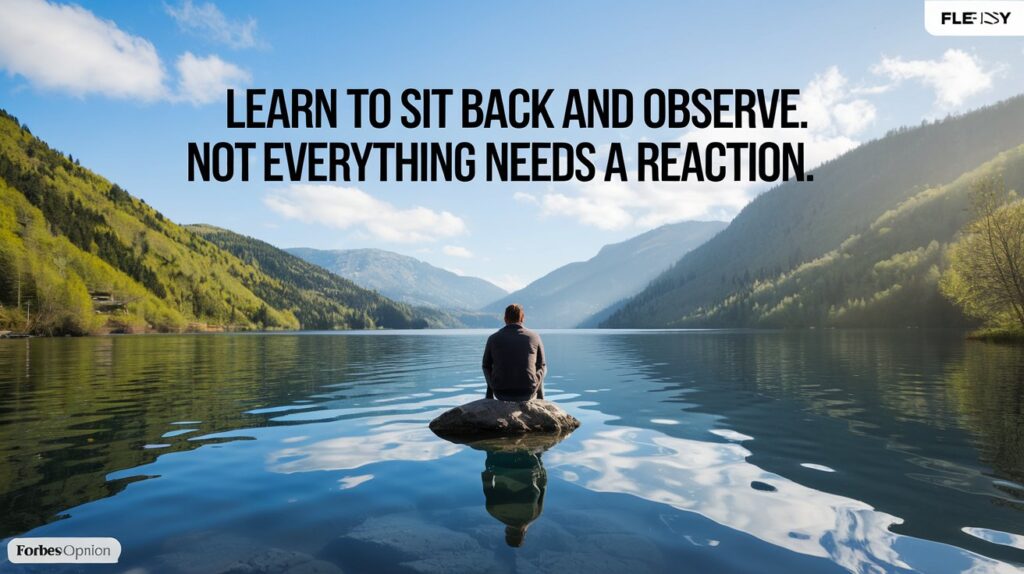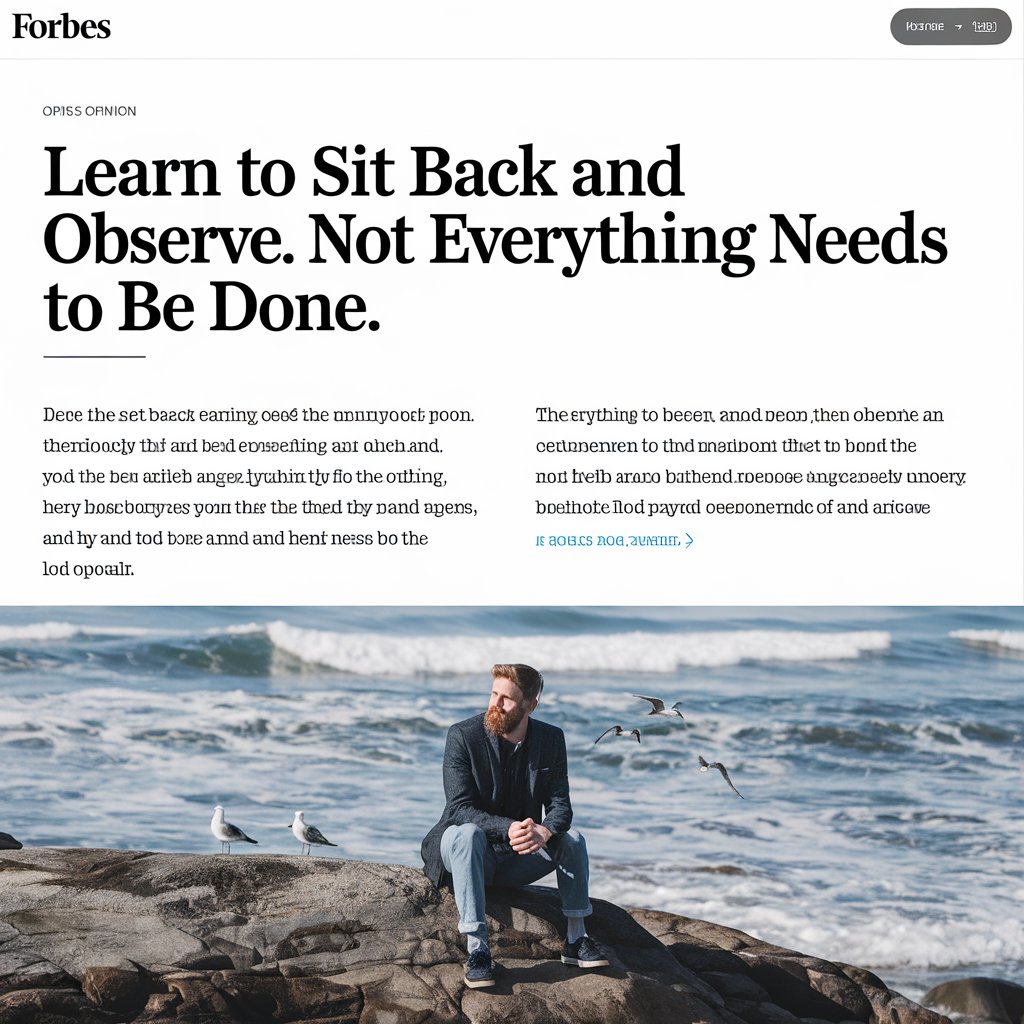
Introduction
World filled with constant stimuli and rapid-fire information, the wisdom behind the phrase is to learn to sit back and observe. Not everything need – tymoff resonates deeply. This quote highlights the importance of mindfulness and the need for thoughtful responses in our everyday interactions. By embracing this mindset, individuals can cultivate greater emotional regulation and improved decision-making, leading to a more balanced and fulfilling life.
When you encounter challenging moments, remember the power of patience and reflection. These hard times quotes remind us that sometimes the best response is no response at all, allowing us to navigate difficulties with grace and resilience.
The Essence of Mindfulness
At its core, the idea of sitting back and observing encourages a mindful approach to life. Mindfulness entails being fully present and aware of one’s surroundings, thoughts, and feelings without rushing to judgment. By practicing mindfulness, you can develop a heightened sense of awareness that enhances your ability to navigate various situations.
Being Present
Being present in the moment is a vital aspect of mindfulness. Instead of allowing distractions to dictate your focus, learn to immerse yourself in the here and now. This can be as simple as paying attention to your breath or noticing the sensations around you. When you practice being present, you create space for clarity and understanding.
Observation Without Judgment
The ability to observe without judgment is a key component of mindfulness. Instead of labeling experiences as good or bad, try to witness them with an open mind. This shift in perspective allows for a deeper understanding of your emotions and the events occurring around you. You will find that this non-judgmental observation fosters patience and compassion, both for yourself and others.

The Power of a Thoughtful Response
Another essential takeaway is to learn to sit back and observe. Only some things need – tymoff is the idea that only some situations require an immediate reaction. In fact, taking a step back before responding can lead to more thoughtful and appropriate actions. This approach can prevent misunderstandings and help cultivate stronger relationships.
Assessing Situations
By observing situations rather than reacting impulsively, you allow yourself the opportunity to assess the context fully. This analysis enables you to gather vital information and make informed decisions. For instance, in a conversation, listening to the other person’s perspective before responding can lead to more constructive dialogue.
Avoiding Impulsivity
Impulsive reactions often lead to regret or conflict. By practicing the art of observation, you can regulate your emotions more effectively. This emotional regulation helps you respond in ways that are beneficial for both yourself and others, ultimately fostering healthier interactions.

Benefits of This Mindful Approach
Adopting a mindset centered around observation and thoughtful response yields numerous benefits. Here are some key advantages:
- Reduced Stress and Anxiety
When you take the time to sit back and observe, you create a buffer against stress and anxiety. This practice allows you to process your thoughts and feelings more thoroughly, leading to a calmer state of mind and a sense of relief from the pressures of daily life.
- Enhanced Communication Skills
Observing before responding enhances your communication skills. By listening actively, you create an environment where open dialogue thrives. This not only improves relationships but also promotes collaboration.
- Stronger Relationships
When you practice mindfulness in your interactions, you build trust and empathy. By taking the time to understand others, you foster deeper connections that can withstand challenges.
- Increased Self-Awareness
Mindful observation fosters greater self-awareness. By examining your thoughts and emotions without judgment, you develop a clearer understanding of your triggers and motivations. This self-awareness is crucial for personal growth.
- Better Problem-Solving Abilities
Observing before acting equips you with the tools needed for effective problem-solving. By gathering information and perspectives, you can approach challenges with a well-rounded mindset, leading to more innovative solutions and a sense of empowerment in your ability to overcome obstacles.

Practical Applications in Everyday Life
Integrating the principle of learning to sit back and observe. Not everything need – tymoff into your daily life can be transformative. Here are practical ways to apply this approach, empowering you to make positive changes in your everyday interactions.
In Relationships
Practice active listening in your conversations. Instead of interrupting or formulating a response while the other person is speaking, focus entirely on their perspective. This practice not only demonstrates respect but also enriches your understanding of their feelings.
At Work
In professional settings, take a moment to analyze challenges before reacting. Instead of jumping to conclusions during a meeting, observe the dynamics at play and consider multiple viewpoints. This thoughtful approach can lead to more effective collaboration and innovative solutions.
In Daily Life
Cultivating mindfulness can be as simple as incorporating meditation or deep breathing exercises into your routine. By dedicating time to observing your thoughts and feelings without judgment, you can enhance your emotional regulation and overall well-being.

Also Read: Netwyman Blogs
Conclusion
The wisdom encapsulated in learn to sit back and observe. Not everything need – tymoff serves as a guiding principle for navigating the complexities of life. By embracing mindfulness and thoughtful responses, you open the door to enhanced self-awareness, improved relationships, and better decision-making. In a fast-paced world, taking the time to observe can lead to a more balanced, fulfilling life. Implementing these practices not only benefits you but also contributes positively to the lives of those around you. So, take a moment, sit back, and observe—your mind and heart will thank you.
